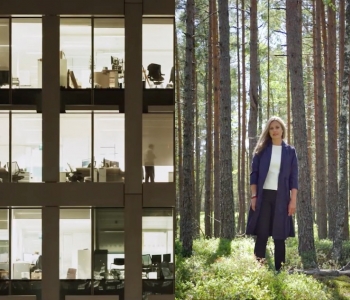Use your next coffee break to find out how to avoid stress and burnout
Today, Dr. Helena Lass launches a new short video on how to avoid stress and burnout in the workplace.
This is for you, your friends, family or colleagues!
It is time to stop the suffering.
It is time to learn intrapersonal skills and secure stress-free life!
It is time to start enjoying your life and work.
The overall costs of poor mental health in workplaces have increased according to Deloitte1 year after year and employers struggle to find working prevention methods. It isn't so anymore.
The solution is here!
Watch this video on your next coffee break!
No e-mail or registration is required.
Just watch, learn, feel good and share!
THE FACTS: WHY YOU NEED TO AVOID BURNOUT NOW?
Cigna Report2 from late 2019 pointed out that the lack of mental wellness at work is a huge problem among employees as:
- 91% of employees agree that colleagues’ stress impacts the workplace with a higher degree of negative impacts;
- 87% of workers are stressed;
- 12% claim it as unmanageable by themselves.
That is why you should listen and share what Dr. Lass states in this Coffee Break training video about the burnout rates among junior doctors and employees in well-known global companies.
You are right to be shocked as burnout is 100% preventable.
STOP HIDDEN MENTAL HEALTH COSTS
Remember that the total annual mental health cost per employer varies between £702 (low estimate) and £3,353 (high estimate)3 according to Deloitte UK as we showed in our last blog/newsletter.
As Dr. Lass wrote her globally published scientific paper4 a few years ago: “There is no single gene known to cause psychiatric illnesses. The overall genetic predisposition to psychiatric diseases is below 50 per cent, mainly influencing individual sensitivity to life stressors.” In the conclusion of this scientific paper Dr. Lass wrote: “As elaborated in The Essentials of Psychopharmacology by S. Stahl, the hypothesis is that mental illnesses are not caused by a single gene nor by a single subtle genetic abnormality but by multiple small contributions from several genes, all interacting with environmental stressors (Stahl 2008). Something else has to occur from the environment to make the inheritance of silent risk manifest as illness. That “something else” is often known as “stress” (Stahl 2008).”
So, the seemingly innocent stress, that most workplaces blindly ignore, triggers these annual costs from presenteeism and ill health.
As you now heard the four AHA's in the video. What is your action plan? What action do you take to prevent burnout now?
DON'T STOP HERE, TRY STRESS REDUCTION TRAINING NOW
Now you know that stress is the main pathway to burnout and adrenal burnout again has a huge overlap with depression. Stress can also cause mental health issues (anxiousness, emotional irritation, etc) and illnesses (such as anxiety, cardiovascular diseases, shoulder and back pain, etc). So come and learn more about how to reduce stress and spot the early warning signs of work burnout that Dr. Lass opens up in the free mini training that clicks below.
As Deloitte has proven now twice over the last 3 years, the ROI of the workplace wide proactive mental wellness approach is there. You can now invest in reducing stress and burnout under the practical guidance of Dr. Lass. Her approach is very practical and easy to apply in real-life and work situations.
You have up to £3,353 to lose per employee each year if you pass this opportunity. You and your team have up to £3,353 to win if you start reducing stress and employee burnout NOW!
► References:
1. Deloitte UK Report “Mental health and employers. Refreshing the case for investment”, January 2020, page 12
2. Cigna Report "360 Well-Being Survey: Well & Beyond" 2019
3. Deloitte UK Report “Mental health and employers. Refreshing the case for investment”, January 2020, page 10
4."Developing Intra-Personal Skills as a Proactive Way to Personal Sustainability - The Preventative Side of the Mental Health Equation’" Dr. Helena Lass (Author); published in the book "Personal Sustainability. Exploring the Far Side of Sustainable Development’" (Edited by Oliver Parodi, Kaidi Tamm); Routledge, London & New York 2018.
This blog post is written by Kaur Lass


